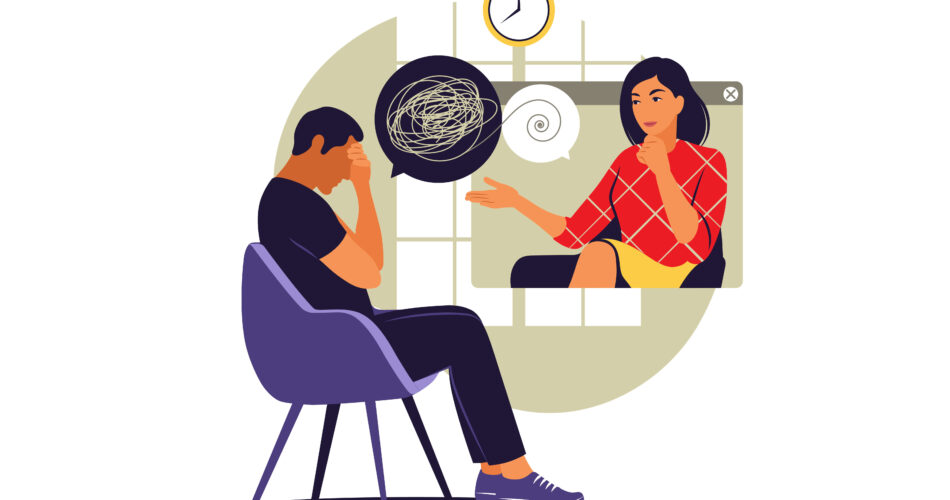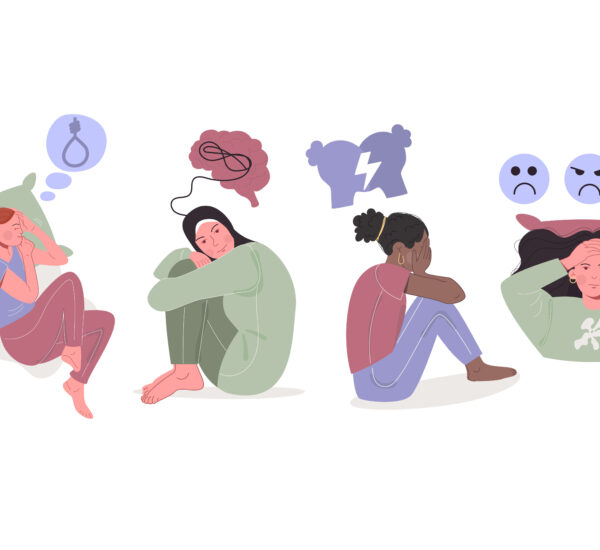An important aspect to remember when dealing with mental disorders is to acquire the suitable treatment option for management of the condition. There are several treatment methods that people can find on the internet. Some may involve the introduction of therapy sessions, medications, etc. However, not every medical services or medications can work. In that case, finding the suitable bipolar disorder treatment, is highly important and seeking a mental health doctor can bring patients closer to their goal.
In this blog, we’ll cover the most common choices for treatment by the doctor. Discover the best performing treatments and how it can possibly help your case towards bipolar disorder management. Let’s begin!
Understanding Bipolar Disorder

Bipolar disorder is formerly known as manic depression, and has been identified by most people as bipolar depression. It is a mental illness characterized by recurrent episodes of mania and depression. The hypomanic episodes are characterized by elevated mood, increased energy levels, racing thoughts, and impulsive behavior, while depressive episodes are marked by persistent sadness, loss of interest, fatigue, and difficulty concentrating. Both frequency and duration of these episodes can vary from person to person.
On the other hand, this type of depression can also be defined as the occurrence of intense emotional distress that happens for a long period. Some of the episodes may last for at least days until weeks. Although, do take note that patients with bipolar disorder also experience neutral emotions, which means no hypomanic episodes or depressive episodes occur.
Types of Bipolar Disorder
Finding the suitable treatment options is important when dealing with this mental disorder. Fortunately, one can find the needed bipolar disorder treatment by knowing more about their condition. In this case, bipolar disorder has various types that people can get diagnosed with. Understanding these types can help patients to identify the next best step when seeking bipolar disorder treatment.
Here are the common types of bipolar depression or bipolar disorder:
Bipolar I – Characterized by at least one manic episode, which may be followed by hypomanic episodes or major episodes of depression. This type of bipolar disorder tends to involve severe mood changes that can significantly impact daily life functioning. Once the doctor identifies the occurrence of this condition, finding the effective treatment is a must.
Bipolar II – Distinctive for having at least one major depressive episode and one hypomanic episode, without a full-blown manic episode. Individuals with Bipolar II may experience longer periods of depression compared to hypomania. If diagnosed with this condition, it’s best to seek immediate help to manage the manic symptoms and depressive symptoms better
Cyclothymic Disorder – A type of bipolar disorder that is less severe than the first 2 types. Most patients experience depressive symptoms and hypomanic symptoms of bipolar disorder for at least 2 years. It is best to seek immediate help to find out the suitable bipolar disorder treatment for this medical condition.
Bipolar Disorder Symptoms and Diagnosis

Recognizing the symptoms of bipolar disorder is crucial for an accurate diagnosis and effective treatment. Common symptoms of a manic episode include grandiosity, decreased need for sleep, excessive talking, and engaging in risky behaviors. On the other hand, symptoms of depression may include feelings of hopelessness, changes in appetite, sleep disturbances, and thoughts of self-harm.
Diagnosing bipolar disorder typically involves a comprehensive evaluation by a mental health professional. The diagnostic process may include the common assessment such as physical exam, checking of symptoms, analyzing medical history, and family history. Additionally, a mental health professional may conduct depression tests, and other psychological assessments for an accurate diagnosis.
The Impact of Bipolar Disorder on Daily Life
Living with bipolar disorder can be challenging, as the condition often disrupts various aspects of daily life. During manic episodes, individuals may experience difficulties with impulse control, leading to financial problems or strained relationships. Depressive episodes, on the other hand, can significantly affect one’s ability to carry out daily tasks and maintain relationships. The unpredictable nature of bipolar disorder may also lead individuals to feel overwhelmed and isolated. In short, these bipolar episodes as a whole are complex, and must be monitored well.
One of the most significant challenges faced by individuals with bipolar disorder is maintaining stable employment. The fluctuating moods and energy levels associated with the disorder can make it difficult to consistently perform well at work. While some individuals may excel during manic episodes, their productivity may suffer during depressive episodes. This inconsistency can lead to job instability and financial strain.
Furthermore, bipolar disorder can also have a profound impact on personal relationships. The extreme mood swings experienced by individuals with bipolar disorder can strain even the strongest of relationships. Loved ones may struggle to understand and cope with the sudden shifts in behavior and emotions. This can lead to feelings of frustration, confusion, and even resentment.
Exploring Effective Treatment Plan for Bipolar Disorder Treatment

As mentioned, there are several working treatment methods that patients can harness for their wellbeing. It is important to know the suitable combination of methods to ensure a proper management of the condition. Fortunately, we can provide the options that are highly effective on that matter.
Here are the possible treatment options:
Bipolar Disorder Medications
Treatment of bipolar disorder usually involves prescription drugs. Medication is a cornerstone of bipolar disorder treatment and is often prescribed to help stabilize mood swings and manage symptoms. Mood stabilizers, such as lithium and valproate, are commonly prescribed to reduce the frequency and intensity of manic and depressive episodes. These medications work by regulating the levels of certain chemicals in the brain, helping to restore balance and stability. It is important to note that finding the right medication and dosage may take time, as each individual’s response to medication can vary.
Additionally, a different medication like atypical antipsychotic medications may be used to control symptoms of mania. These medications can help reduce agitation, hallucinations, and delusions that may occur during manic episodes. Close monitoring and regular communication with a healthcare provider are essential to ensure that the benefits of medication outweigh any potential risks.
Psychotherapy and Counseling
On the other hand, talk therapy is one of the recognized forms of treatment, not only for bipolar disorder, but other mental health conditions. Therapy can provide individuals with coping strategies and help people navigate the challenges along the way. Some of the commonly used therapies as bipolar disorder treatment are cognitive behavioral therapy, family-focused therapy, and interpersonal therapy.
By challenging and reframing negative thinking patterns, individuals can develop healthier coping mechanisms and improve their overall well-being. Thus, it can also be beneficial in promoting understanding and support.
Lifestyle Changes and Self-Care
Adopting healthy lifestyle habits and practicing self-care can enhance the overall management of bipolar disorder. Regular exercise has been shown to have a positive impact on mood and overall well-being. Engaging in activities such as walking, swimming, or yoga can help reduce stress and promote a sense of calm. Additionally, sufficient sleep is crucial for maintaining stability, as sleep disturbances can trigger mood episodes. Establishing a consistent sleep routine and creating a comfortable sleep environment can greatly improve sleep quality.
A balanced diet is also important for individuals with bipolar disorder. Consuming a variety of nutrient-rich foods, such as fruits, vegetables, whole grains, and lean proteins, can support brain health and provide the necessary energy for daily functioning. It is also important to avoid excessive caffeine and sugar, as these substances can negatively affect mood and energy levels.
Lastly, managing stress is crucial for individuals with bipolar disorder. Stress can trigger mood episodes and exacerbate symptoms. Engaging in stress management techniques, such as mindfulness meditation and relaxation exercises, can help individuals cope with the challenges associated with bipolar disorder. Taking time for oneself, engaging in hobbies, and seeking support from loved ones can also contribute to overall well-being.
The Role of Support Systems in Management
Family and Friends’ Involvement
Support from family and friends can significantly contribute to the successful management of bipolar disorder. Loved ones can provide emotional support, assistance with medication adherence, and help in recognizing early signs of relapse. Education about bipolar disorder and open communication within the support system can foster understanding and reduce the stigma associated with mental health conditions.
Furthermore, family and friends can play a crucial role in creating a stable and nurturing environment for individuals with bipolar disorder. By understanding the challenges and triggers associated with the condition, loved ones can help implement healthy lifestyle changes, encourage regular therapy sessions, and promote a supportive atmosphere that prioritizes mental well-being.
Support Groups and Communities
Meanwhile, joining support groups or engaging with online communities can provide individuals with bipolar disorder an opportunity to connect with others who understand their experiences. Support groups offer a space for sharing coping strategies, discussing treatment options, and receiving encouragement from individuals who have gone through similar challenges. These communities can also serve as valuable sources of information and support during difficult times.
Moreover, participating in support groups can empower individuals with bipolar disorder to take an active role in managing their condition. By learning from the experiences of others, individuals can gain insights into effective self-care practices, explore alternative treatment approaches, and build a network of understanding peers who can offer guidance and empathy along the journey to recovery.
Navigating the Healthcare System
Finding the Right Mental Health Professional
Seeking appropriate professional help is essential for individuals with bipolar disorder. Finding a mental health professional with experience in treating this condition is crucial, as they possess the knowledge and expertise to tailor treatment plans to individual needs. Psychiatrists, psychologists, and licensed therapists are some of the healthcare professionals who specialize in treating bipolar disorder.
When looking for a mental health professional, it is beneficial to consider their specific approach to treating bipolar disorder. Some professionals may focus more on medication management, while others may emphasize therapy and counseling. It is important for individuals to find a professional whose treatment philosophy aligns with their own preferences and goals for managing the condition. Additionally, seeking recommendations from primary care physicians or trusted individuals in one’s support network can help identify reputable professionals in the field.
Understanding Health Insurance and Treatment Costs
Understanding health insurance coverage and treatment costs can help individuals plan and navigate the financial aspects of bipolar disorder treatment. It is important to be aware of the specific services covered by one’s insurance plan and to explore available resources, such as patient assistance programs, for managing treatment costs.
In addition to health insurance coverage, individuals with bipolar disorder may also benefit from exploring community mental health centers and nonprofit organizations that offer sliding scale fees or financial assistance for mental health services. These resources can provide valuable support for individuals who may face financial barriers to accessing necessary treatment.
By proactively researching and understanding the financial aspects of treatment, individuals can make informed decisions about their healthcare while minimizing financial stress.
Conclusion
Finding the right treatment options for managing bipolar disorder is essential for individuals living with this condition. Through a combination of medication, therapy, lifestyle changes, and support from loved ones, individuals with bipolar disorder can achieve stability and improve their overall quality of life.
If you have been diagnosed with bipolar disorder, early intervention is a must. Discover the appropriate treatment to manage mood symptoms and overall bipolar symptoms today.
Book an online consultation with a mental health doctor to begin managing the disorder.
Bipolar Disorder Treatment Quiz
Test your knowledge about managing bipolar disorder

